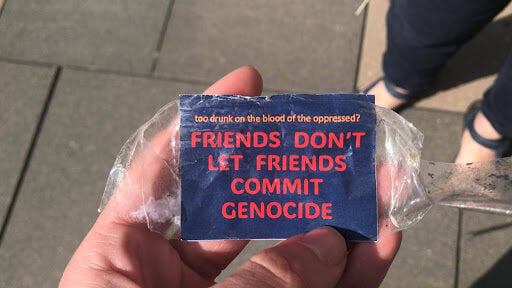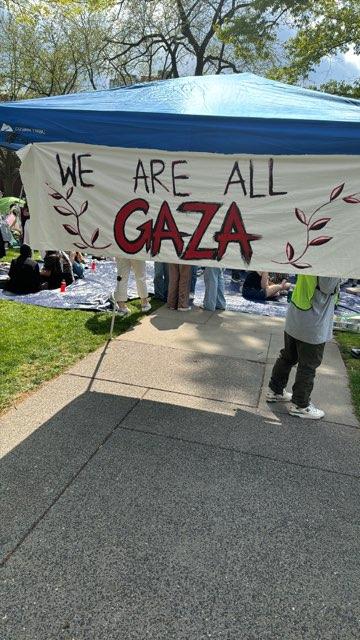(JNi.media) A little over a year after Danny Danon was fired in 2014 as Deputy Defense Minister for his criticism of Prime Minister Netanyahu’s handling of Operation Protective Edge, Danon now finds himself as Israel’s Ambassador to the UN. This seems like an odd move for the PM after Danon had said Bibi was conducting the war the way Meretz’ Zehava Gal-On would if she were prime minister, which to a Likud leader must have sounded like fighting words, and, indeed, led to Bibi showing Danon the door. In addition, sending a minister who was dismissed for saying Bibi wasn’t tough enough in a conflict over which the UN has investigated Israel for war crimes seems strange. Zionist Camp and opposition leader MK Isaac Herzog called the move a “nail in the coffin of Israel’s foreign relations.” MK Tzipi Livni said Danon was “the wrong man at the wrong place at the wrong time.” One would think Bibi would select someone not quite as hardline to smooth things over at the UN, which piles on resolution after resolution criticizing Israel. Is Bibi showing his contempt for the UN? Is Danon going to make Bibi seem moderate to the rest of the world in comparison, or is he simply sending Danon to the UN as a convenient way to get the gadfly off his neck?
Last July, Danny Danon said that the problems with Operation Protective Edge were the direct responsibility of Benjamin Netanyahu. In a television interview, the deputy defense minister said, “The prime minister is responsible for good or bad. If the result of the operation is negative, the responsibility for the failure is with the prime minister. There is no need to sugarcoat. Hamas decided when we started, when we would finish and they have set the score … That is why I, as a senior member of Likud, say that this operation has been run like Zehava Gal-On is prime minister. This is Meretz policy.” Danon was upset when the Prime Minister said he was willing to accept an Egyptian-brokered peace deal with Hamas and rejected the strategy of deploying ground troops.
Netanyahu’s response was in the same harsh spirit as Danon’s criticisms; Danon compared Bibi to Meretz leader Zehava Gal-On, and in return, Bibi said Danon’s words gave nachat (comfort) to Hamas. Words like Danon’s “are used by the terrorist organization of Hamas to taunt the Israeli government (presumably in the same spirit as saying “Come on, Bibi, you throw like a girl”), as we see on Hamas’ own media networks. In light of these statements, which express a lack of faith in the government and in the person at its head, one would expect the deputy defense minister to take responsibility and resign.” Danon did not resign, so Netanyahu had to fire him.
One wonders how Danny Danon will be greeted at the UN. He is vacating his position as Minister of Science, Technology and Space to take Bibi’s former job, and, given the years Netanyahu served at the UN from 1984 to 1988, one may wonder why he didn’t choose someone more diplomatic and moderate. It is no secret that Netanyahu is regarded by many in the world as an extremist, but as Alison Kaplan Sommer points out in Haaretz, Danon is to the right of Bibi on many issues and is just as outspoken. As reported by Haaretz, Danon is such a strong opponent of the two-state solution, that “Danonism” is a term used for the pressure on Bibi to lean further to the right. Danon even fought to replace Netanyahu as the party head and said in November, “Netanyahu, you abandoned the Likud path long ago. I’m here to return the movement to its historic path. The Prime Minister froze construction (in the settlements), something left-wing governments never did; he freed dozens of terrorists with blood on their hands; he agreed to a ceasefire (in Gaza) when the tunnels were still burning underground. He stopped the Israeli Defense Forces from destroying Hamas…”
At a time when Europe is absorbing refugees from the Middle East, one wonders how kindly his peers at the UN will recall Danon’s aggressive calls to deport refugees and illegal immigrants from the Sudan. In 2012, in an anti-African demonstration in South Tel Aviv, Danon said, “The infiltrators are a national plague and we must deport them immediately before it’s too late … Deportation now is the only solution!” And while many Israelis understand the hostilities that occurred on the flotilla from Turkey as self-defense of the Israelis against terrorists, some in the UN think otherwise. Danon does not seem to have the inclination to take conflicting perceptions into account in trying to make Israel’s case, but instead, habitually expresses his views with bitter sarcasm directed against opponents. This may seem gutsy, but is it the right trait for a diplomat?
One could applaud the sentiments expressed in his letter to Turkish Prime Minister Tayyip Erdogan that he regrets only nine terrorists were killed on the flotilla due to the over cautiousness of the IDF—and still wince at the fact Michael Oren, former ambassador to the U.S. and author of “Ally,” a criticism of the Obama Administration, wrote in the book that Danon would “only make Israel look more extreme.” The context was Oren’s trying to prevent the New York Times from printing Danon’s op-ed “Making Israel Whole” that said Israel should go ahead and annex the disputed territories. When Danon’s article appeared after Oren’s attempts at halting it, Oren said he felt cheated by the Times. If a fellow ambassador, who is not known to be far left, thinks that Danon is too extreme for the New York Times, how do those who agree with Oren think Danon will make Israel look at the UN?
“Danon is the perfect representation of the wet dream of every Israel hater,” writes Ben Dror Yemini in Ynet. “This is how they love to hate us. Now Danon is moving into Israel’s display window. They can’t possibly ask for a better gift.” Speaking of the outgoing UN Ambassador, Ben Dror writes, “Ron Prosor, the current ambassador, is doing an amazing job. He’s not nice, professionally. Far from it. He knows how to be blunt and aggressive. But he also knows that speaking in support of outposts, for example, is like scoring our own goal against the national interest … It’s easy to understand why Netanyahu wants to get rid of him. But why is he punishing Israel?”
The partisan divide is increasing in the United States as Sanders, a Jewish Democratic Socialist, and Trump, a billionaire real estate mogul who has a penchant for creating offense, particularly on immigration, are leading presidential candidates in recent polls. The plethora of GOP candidates are trailing behind Trump, even Jeb Bush, who seemed to be a shoo-in for the GOP nomination, following family tradition. The fact that Danny Danon has forged tight relationships with far right figures such as Sarah Palin and Mike Huckabee might ultimately prove to be a liability, not just in the case of a Democrat winning the White House, but because of his close connection with unsuccessful candidates who are seen as extremists. There might have been a time he boasted of having taken former Vice Presidential nominee Sarah Palin on a tour of the Western Wall tunnels, but after her teleprompter broke during a crucial speech which unraveled into rambling incoherence, she was dropped by just about everyone, even her Fox news buddies. He backed Rick Perry in 2012, and Perry is losing again, and may not make it to 2016. Mike Huckabee has declared that Danon would be an Israeli prime minister in his lifetime, but it doesn’t look like that lifetime will include a Huckabee Administration, given that he, too, is far behind in the polls. In addition, Danon’s close friendship with controversial figures like Glenn Beck, formerly of Fox News, may, in the event of a Democratic victory, make him seem like an American-style right-winger as well as an Israeli one, doubling down on the unease abroad.
Herb Keinon of the Jerusalem Post posits that Bibi’s appointment of Danon to the UN expresses what Bibi thinks of Danon and what he thinks of the UN. According to Keinon, Bibi is, in essence, saying, “celebrated left-wing author Amos Oz could be named Israel’s next ambassador to the United Nations and it would not make a whit of difference regarding how that organization treats or views Israel.” Appointing someone seen as more conciliatory may look like submission, and what difference will it make? “Will the Muslim and non-aligned voting blocs change their voting patterns against Israel because of the personality of the Israeli ambassador? How many more anti-Israel resolutions can there really be?” He adds that “the situation facing Israel at the UN really can’t get that much worse,” and Bibi’s move is one that, indeed, expresses “disdain for the organization.”
Danny Danon was born in Ramat Gan to Joseph and Yocheved Danon and served in the Betar Youth Movement. He earned a BA in International Affairs from Florida International University and a master’s degree in Public Policy from Hebrew University. He served in the IDF, then was sent to Miami by the Jewish Agency, and in 1996 became assistant to Likud MK Uzi Landau. He became chairman of the World Betar Organization. In 2006, he became chairman of the Likud party. He vocally opposed Prime Minister Ariel Sharon’s disengagement plan from Gaza and was a critic of Benjamin Netanyahu, too. In 2009, he became Deputy Speaker of the Knesset and declared in an interview in 2011, “There is only one state for the land of Israel. I do not believe in a two-state solution.” After being dismissed by Netanyahu over his remarks concerning Operation Protective Edge, Danon ran against Netanyahu for leadership of the Likud party and received 19 percent of the vote.
One can characterize Danny Danon as an extremist, but, to be fair, the place he is headed, the UN, is a cradle of extreme views as well, many directed against Israel. When the existence of the State of Israel was being debated at the UN, a partition plan was proposed and voted on, creating Jewish and Arab states with Jerusalem as an International city. Jewish groups lobbied President Truman vigorously to vote “Yes.” Arab nations voted against the plan. Israel declared a state, and the Arabs retaliated by invading, but were defeated by Israel. This demonstrates that, at the best of times, even when Israel scored at the UN, that victory hardly had any teeth, and Israel was made to fight for that victory through a military conflict. It was a hard first lesson for the State of Israel, and one that hasn’t changed very much since.
Israeli leaders have traditionally felt mistrust toward the UN. The expression “Um-Shmum” (“Um” is the Hebrew acronym for UN) concerning the UN was born in response to a statement that if it had not been for the UN declaration of 1947, the State of Israel would not have been founded. “Not at all!” responded Prime Minister Moshe Sharett, “Only the daring of Jews founded this country! Not some Um-Shmum resolution.” In 1998, UN Secretary Kofi Annan visited the Knesset and made a pun on the expression. He said, “Without the UM we will all have klum (nothing).” Benjamin Netanyahu has not been chary of expressing his dislike of the UN. In a 2011 speech, he referred to the UN as “a theater of the absurd” and “a place of darkness for my country.”
One of the darkest periods for Israel at the UN, aside from the present time, was during the 1970s and the Arab oil embargo. There was a concentrated anti-Israel propaganda war that made its goals obvious from its sheer relentless obsession against the Jewish state. In the mid 70s, an Arab-Soviet-Third World bloc was formed to advocate on behalf of the PLO through demonizing Israel. In 1974, Yasser Arafat was invited to speak before the General Assembly, and he said he would carry both a gun and an olive branch as he was standing with a gun holster on his hip. In 1975, the PLO was given permanent representation status. In addition, the Committee on the Inalienable Rights of the Palestinian People was founded and it called for the immediate return of all Palestinians to areas under Israeli control. In 1975, the UN General Assembly passed the “Zionism is Racism” resolution. Representatives from Arab countries were allowed to make incendiary statements about Israel with impunity, even going so far as to claim that it is written in the Talmud that if a Jew doesn’t consume the blood of non-Jews every year, they will be punished in the afterlife. In 2003, Palestinian observer to the UN Nasser al-Kidwa said, “Violence in self-defense in the occupied Palestinian territories is not terrorism.” It was said at the UN that Israel’s security fence was not built to keep out terrorists but because of the lust for Palestinian trees and desire to control the territories’ ground water.
It is not just the imagination of militants that can produce the impression that Israel is singled out by the UN. The UN did not pass a resolution condemning the genocide in Darfur, but had plenty to say about how Israel treated members of the Lebanese terror organization Hezbollah. When there is a conflict between the Palestinians and Israelis, the latter are investigated by the UN Human Rights council, but the Hamas is not made to account for rockets fired into Israel. In 2015, the World Health Organization singled out Israel for violating health rights when Arabs travel to Israel for medical treatment. Israel has to stand before accusers who are often its enemies. Of the 47 countries on the Human Rights Council, 17 are dictatorships and nations with abysmal human rights records. The UNHRC every year debates item number 7, which is Israel’s treatment of the Palestinians. No other country is on the agenda to have its human rights record discussed annually.
When Israel was being investigated for war crimes during Operation Protective Edge, the commission included virulently anti-Israel Canadian professor William Schabas. Then the Israeli Ambassador to the UN wrote a letter to UN Secretary Ban Ki Moon, arguing that “Mr. Schabas’ agenda is clear. He has repeatedly called for the prosecution of Prime Minister Netanyahu and former President Shimon Peres, saying Netanyahu should be ‘in the dock of an international court.’ In light of his hate-fueled rants, one doesn’t need to be a fortune teller to predict the outcome of the inquiry led by Mr. Schabas.” In protest, Israel did not allow entry to members of the commission, who carried out their inquiry in Jordan. Because of increased allegations of bias, William Schabas resigned from the commission and was replaced by Judge Mary McGowan Davis.
The UN’s blatant anti-Israel focus has been criticized, but not remedied. In 2013, the United States sent a letter to the UNHRC saying, “The United States remains extremely troubled by this Council’s continued biased and disproportionate focus on Israel. The Human Rights Council must treat all countries by the same standard … the legitimacy of this body remains in question as long as one country is unfairly and uniquely singled out …” In 2006, Kofi Annan acknowledged there was a bias against Israel, “On one side, supporters of Israel feel that it is harshly judged by standards that are not applied to its enemies. And too often that is true, particularly in some UN bodies.”
Maybe, like Bibi, Danon’s serving as UN ambassador is a kind of Gehinnom-Purgatory that he must endure before becoming prime minister, not to suggest that the office of prime minister will be Gan Eden. Perhaps the reasoning is that there is no point in being too diplomatic or too nice at the UN, which doesn’t seem like the kind of place where an Israeli can beat around the bush with niceties and expect to be heard. When Ariel Sharon became prime minister and was criticized for forsaking positions he once supported, he replied, “What you can see from over here, you can’t see from over there.” Could it be that, far from sending Danny Danon on exile to the UN, Netanyahu is grooming him to be a future prime minister? As Daniel Gordis writes for Bloomberg, “Perhaps Netanyahu, recognizing Danon’s talent, believes the best place to speak on the world’s stage is … on the world stage. For his own political ends, Netanyahu appears to have sent Danon into exile. For Danon’s sake and Israel’s, however, Netanyahu appears to have sent him back to school.”













